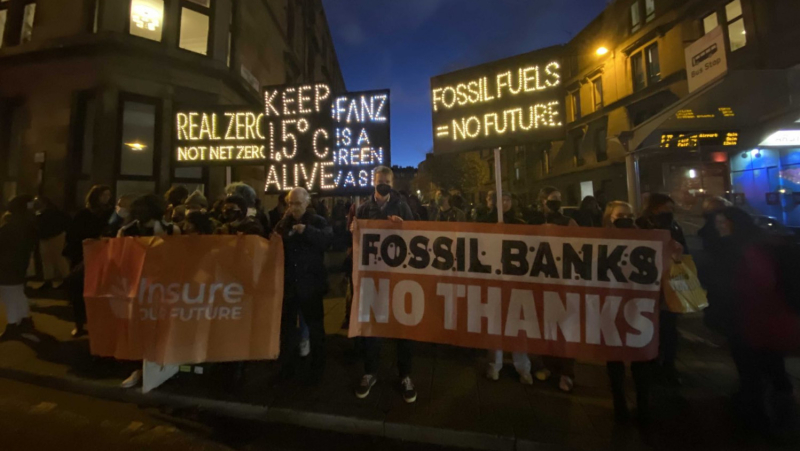BankTrack’s statement on the dissolution of the Net Zero Banking Alliance (NZBA)
Diogo Silva, Banks and Climate Campaign Lead, BankTrack: diogo@banktrack.org
Quentin Aubineau, Banks and Climate Policy Analyst, BankTrack: quentin@banktrack.org

Diogo Silva, Banks and Climate Campaign Lead, BankTrack: diogo@banktrack.org
Quentin Aubineau, Banks and Climate Policy Analyst, BankTrack: quentin@banktrack.org
The announcement of the immediate dissolution of the Net Zero Banking Alliance finally puts an end to its sad spiral of decline. But very little will change in practice, as the NZBA had already weakened itself to the point where it had lost all purpose. Its failure underscores the urgent need for regulation to force banks to align bank finance with global climate targets.
Announced in April 2021 and launched with great fanfare by Mark Carney and Michael Bloomberg at that year’s COP, the NZBA’s stated aim was to align banks’ lending and underwriting activities with the goal of achieving net-zero greenhouse gas emissions by 2050 and meeting the 1.5ºC target of the Paris Agreement.
From the beginning, civil society organizations, including BankTrack, flagged major shortcomings. Although the NZBA eventually acknowledged some of these, it failed to address them adequately, responding instead by gradually weakening its guidelines and granting more leeway to its member banks.
Once counting 144 members, since December last year, the alliance has faced an exodus starting with US banks and then spreading. In response, it voted to loosen its guidelines earlier this year, in a failed effort to stem the tide of withdrawals. The subsequent departure of major banks such as HSBC, Barclays and UBS over the summer signalled that the NZBA’s collapse was inevitable.
The NZBA consistently appeared more focused on growing its membership than on ensuring meaningful action. An alliance that included ethical banks (such as Triodos, Amalgamated Bank and Vancity), together with more progressive banks (La Banque Postale, Handelsbanken, Danske Bank), and the world’s largest fossil fuel financiers (including JPMorgan Chase, Citigroup and Bank of America) was always going to be difficult. But the latter group was eventually able to dominate the NZBA’s direction.
Perhaps the biggest “achievement” of the NZBA has been in greenwashing: it shifted the discussion on how banks need to respond to the urgency of the climate crisis, towards a focus on long-term emission reduction targets, and away from the urgent need to halt finance fossil fuel expansion – a fundamental prerequisite for any credible 1.5ºC-aligned strategy. The alliance allowed its members to keep financing companies developing new fossil fuel projects, a move plainly inconsistent with its stated goals.
We know that among the banks that joined the Alliance, there are those that held a sincere commitment to the future — with concrete positions and measurable targets — while others merely sought to benefit from the optics of climate responsibility without taking real action.
To the former, we urge courage: demonstrate real climate leadership, starting with the immediate cessation of financing for companies expanding fossil fuel operations. The moment has come to distinguish the banks of the future from those retreating into the dark, obsolete economics of the past, following the old cowboy path of Donald Trump’s deregulation agenda.
BankTrack will continue to expose climate laggards and to encourage those institutions determined to fight for a fair and green financial system — one that serves people and planet, not short-term profit.
